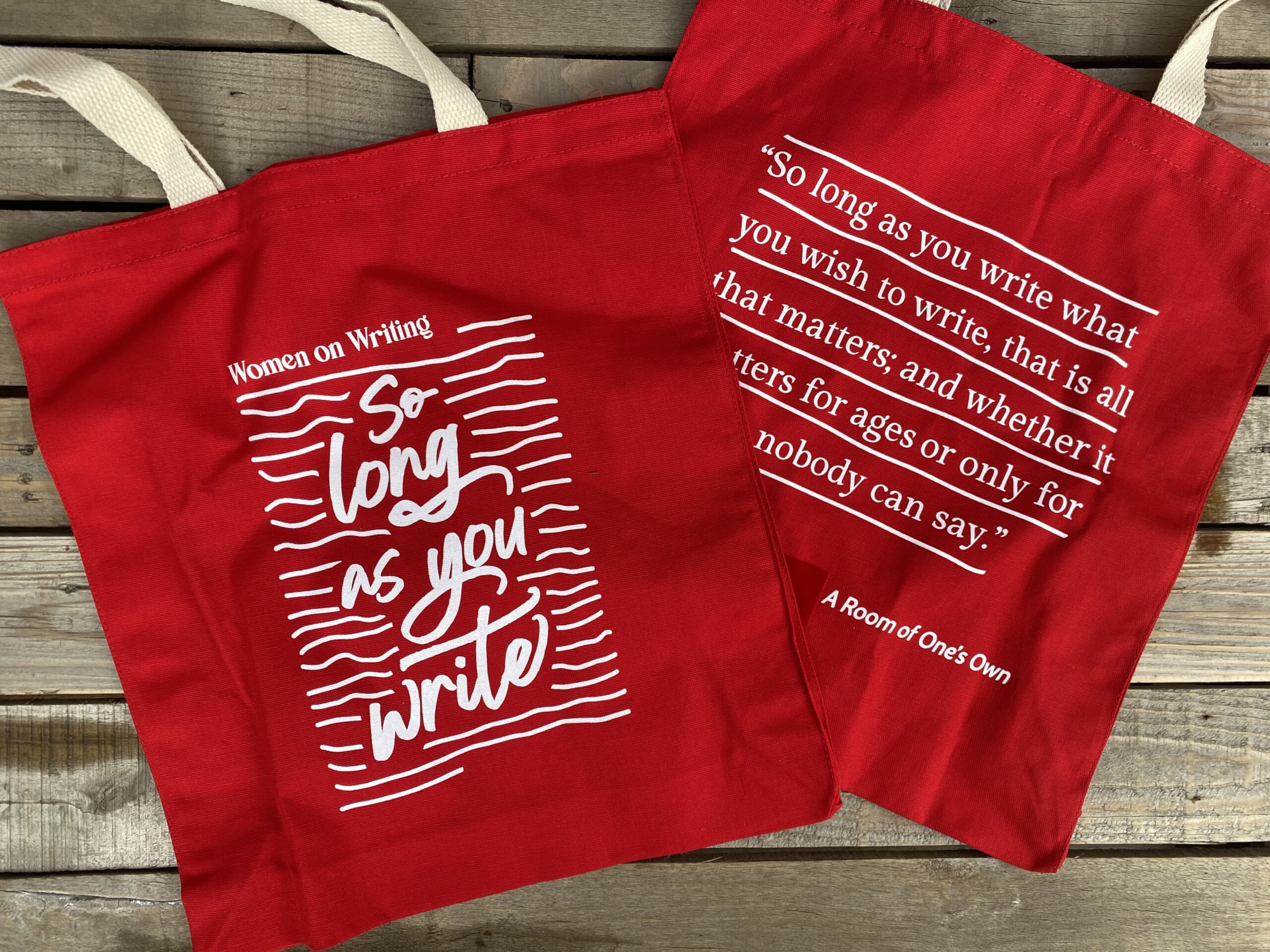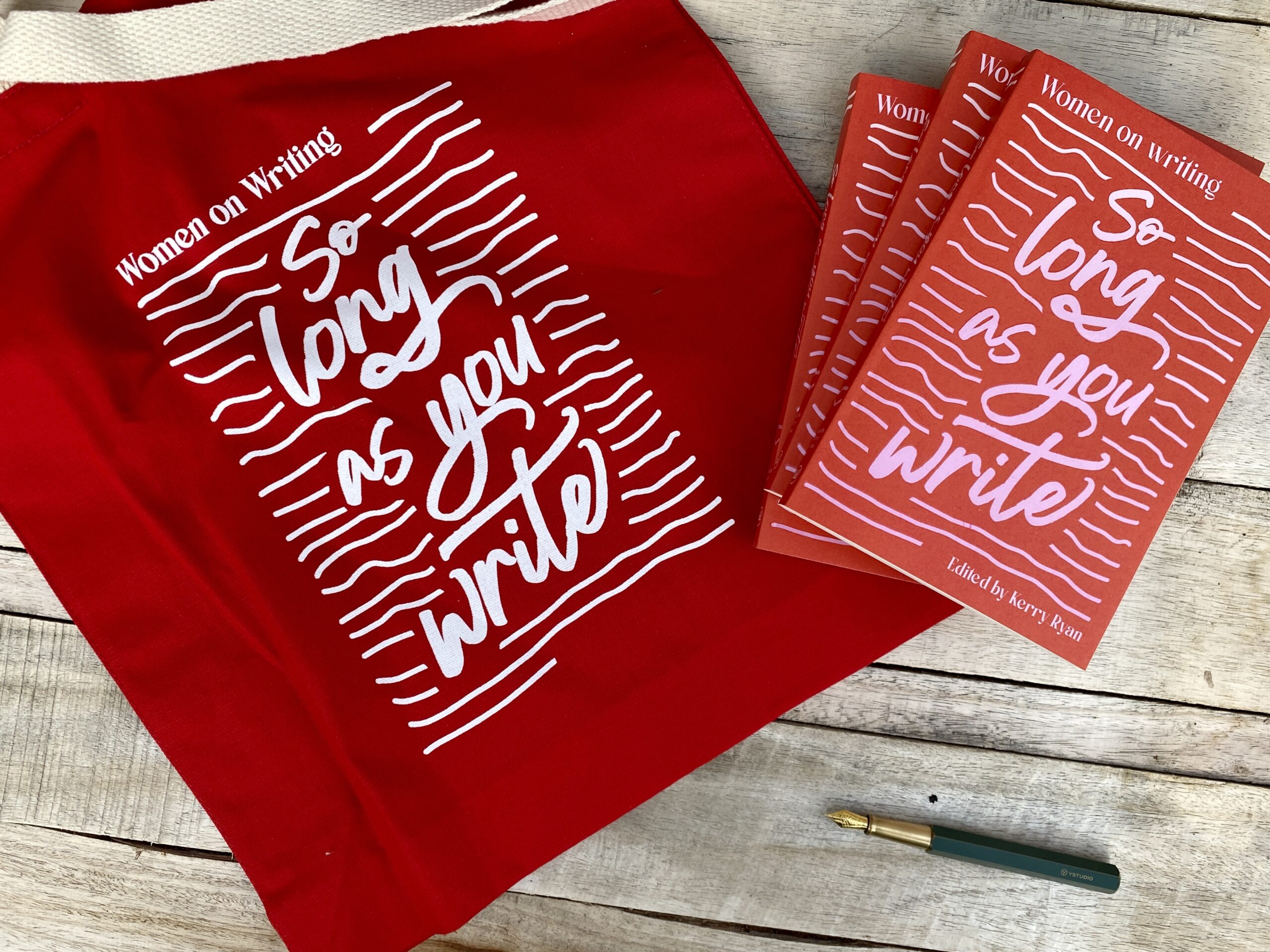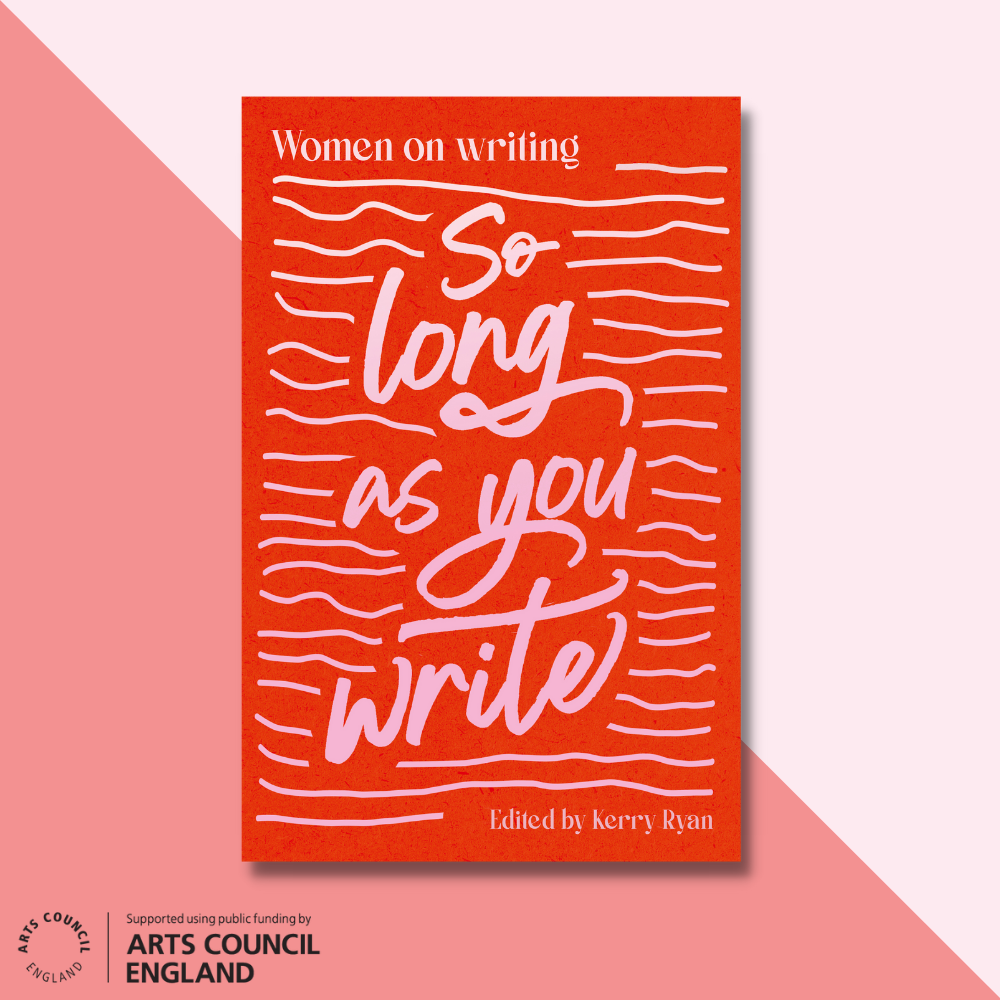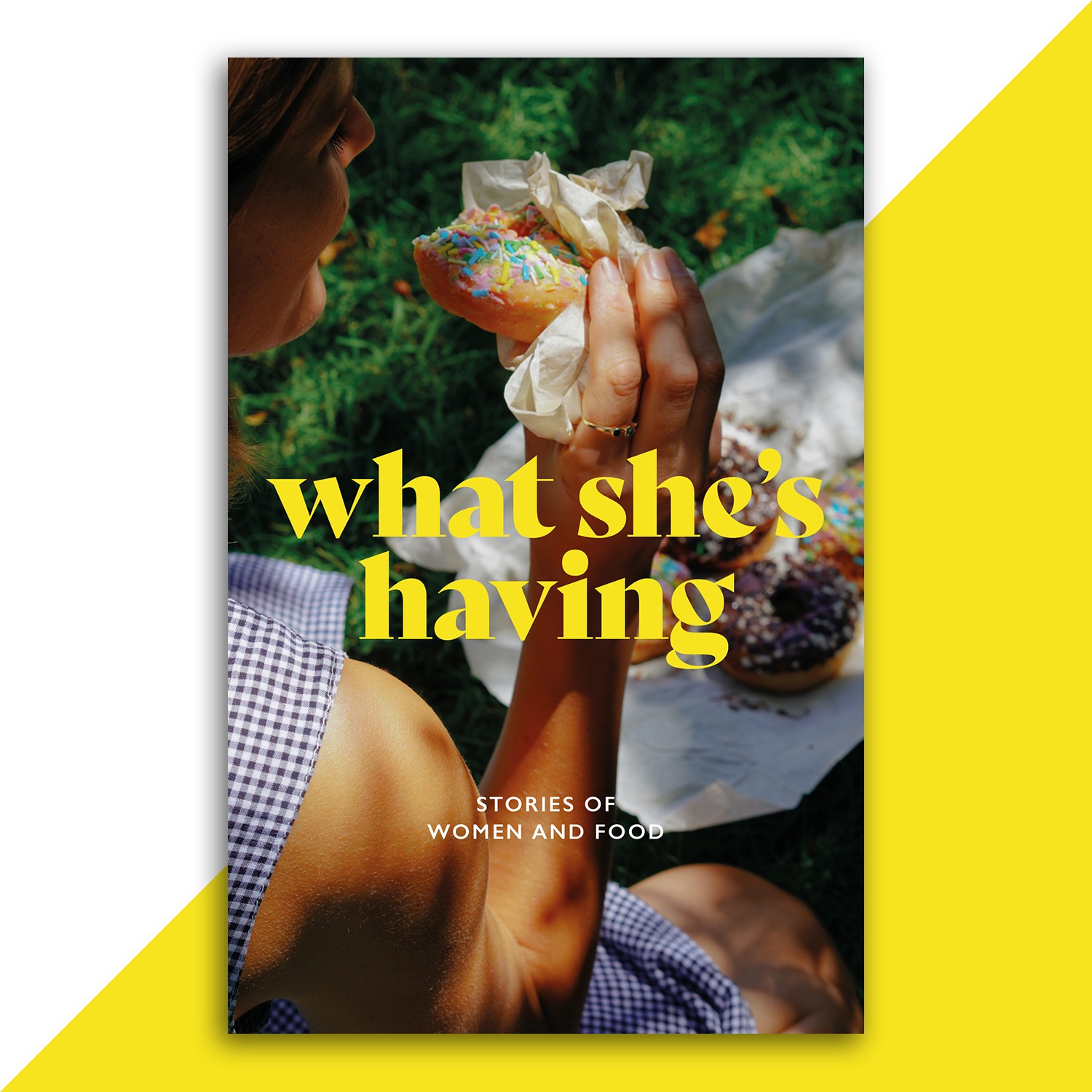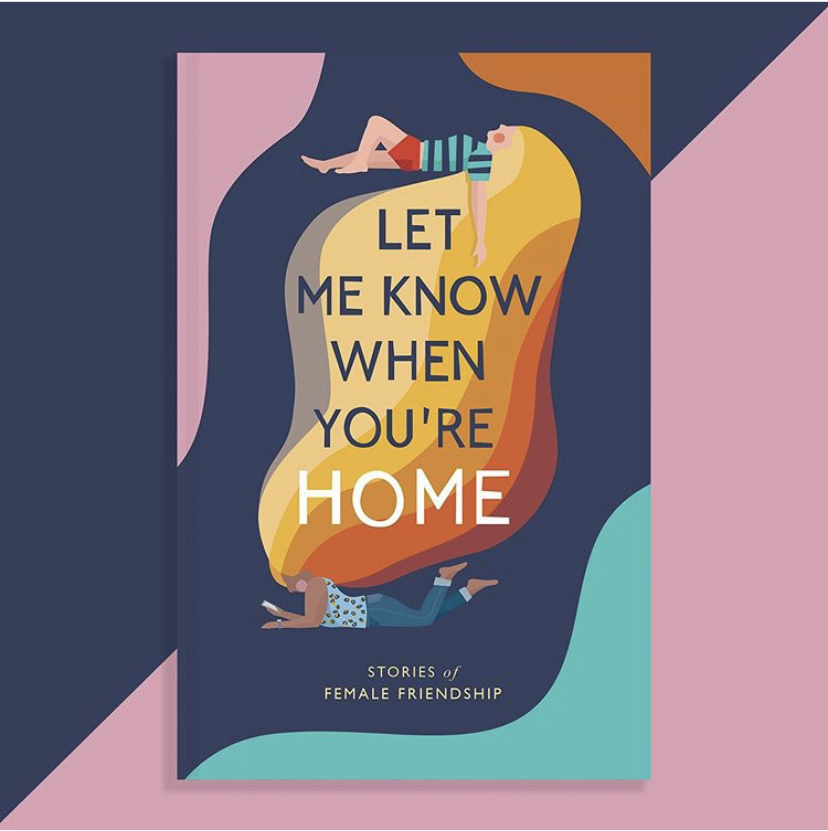Stone Sheep
by Abi Carter
You wake with a start, but keep your eyes screwed shut, damp sheet knotted between your knees. Normally at Sunday Mass you just clasp your palms together and dutifully close your eyes, but now you think, ‘Dear God, I’ll believe in you again if you un-make it. I’ll eat my greens. I’ll say my Hail Marys.’
You snap your eyes open. Everything looks the same. Plastic clock ticking on the bedside table, books gathering dust in tidy rows on the shelves, the fresh clothes you laid out on the floor last night, the empty outline of a person. You dress quickly, make your bed, arrange the dolls in a row along the edge.
Following the sound of voices and the clatter of cutlery coming from below, you pad down the stairs, fingertips tracing the familiar pattern of door frames and wallpaper as it changes from buff to smooth to rough – past your mother’s room, your father’s, down another flight of stairs, through the dim hallway and into the kitchen.
Your breakfast is all laid out – a boiled egg and buttered soldiers on a blue-and-white patterned plate – and you skirt round the table to nudge up the volume dial on the radio. Your parents are talking in suppressed whispers, staccato syllables shot between clenched teeth, so they don’t notice that you don’t eat a crumb. You’re waiting for the news.
The pips come at eight on the dot and the newsreader reels off the headlines. Nothing. You breathe out steadily. Every day for a week now the same, building tension, release, and then tension back again. They’re going to tell on you soon.
You arrange the soldiers in height order, then march them off the edge of the plate into the dog’s waiting mouth. You lick a crumb, a smear of butter, from the pad of your thumb, then let the dog clean off the rest with his strong tongue. It wasn’t his fault.
Rising, brushing crumbs from his broad chest, your father picks up his jacket. He gives you a quick peck, brushing the top of your head with his scratchy beard, then smoothing your shining hair with an indulgent palm. You lean into his touch. Your mother lifts her face expectantly as he passes, but he doesn’t seem to notice. He dashes out the door. You look down at your plate, dig a fingernail into a fleck of congealed orange yolk, so she doesn’t know you’ve seen.
A sheep bleats in a nearby field and you start sideways, elbow into the butter dish, and your mother tuts. She doesn’t know what’s got into you lately, but she’s got things to do so you need to go play outside. And take the dog. And make sure he stays on the lead. And stay away from those girls. Cecilia is trouble, she says, and Joy doesn’t even have a father. Lord only knows how she’ll turn out. Your mother takes her chipped cup of coffee upstairs, trailing cigarette smoke like gossamer threads.
The heat beating down outside is brutal, reflecting from the shining windscreens of freshly washed cars, curling the tips of the border hedges, scorching lawns. A faint shimmer rises like glitter from the baking pavements. You make sure not to step on the cracks. You call the dog to heel.
A week before, you’d wandered further than usual with your friends, down to the shores of the scummy lake, and were taking turns at skipping stones, when something spooked the dog and he slipped his collar and ran. You howled for him to come back – as your friends all howled with laughter – and watched as he turned his course towards a nearby huddle of sheep and began to drive them towards the lake, ignoring your calls, delighted, nipping at their heels, pushing them forward, across the rocky shore and out over the water’s edge, where he abruptly stopped – he’s never been fond of getting his paws wet – and the sheep, bleating in distress, not yet shorn for the summer, became waterlogged, too heavy for their beating legs and, one by one, began to sink. The surface of the lake churned, then just a few bubbles, and then it was glassy once more.
When it was all quiet, your friends turned to you and said, it was your dog that did it. We couldn’t stop him. But they said it was an accident. They promised not to tell.
“You start to panic. You flinch when a distant car door slams. You’re waiting for sirens, the insistent ring of the doorbell, the dog’s frightened bark.”
You meet at the corner, as you have done every day for the past two weeks. When you approach with the dog, Cecilia turns her shoulder. She asks why you brought him again. But as you all set off, Joy slips her sticky arm through yours and pats the dog gently on his head. She says it wasn’t his fault.
When you get to the lake, you walk the perimeter, and then you repeat the ritual, each taking a fat stone and casting it into the water, as far as you can.
Joy’s lands closest, so it’s her turn to be questioned. Cecilia takes the lead. She asks her where she was on Monday evening, a week ago. Joy says you were all together, at the park, on the swings, then later behind the chip shop, sharing a bag of scraps. Cecilia spits in Joy’s hand, shakes it, and then you do the same. Joy promises not to tell a soul, not even her mother. Her mother’s not a good sort, your mother says.
Back home, time is elastic, dragging in the afternoon hour you wait for your father to come home, your eye on the alarm clock’s hands. You know that if you look away for a second you’ll be pinged forward five weeks to the end of the summer. You try not to close your eyes, splayed across the end of the bed in a splatter of sun, baking like a fish. You’re waiting for the burr of the telephone, the crunch of footsteps, the long arm of the law hammering on the door. You can hear your mother clunking around downstairs. You try not to move. If she realises you’re home she’ll ask you to paint her nails. She’ll get you to fix her a drink, pressing the ice cubes out of their plastic trays.
You shimmy down to hang your head off the edge of the bed, watch the ceiling turn. Your head fills with blood, heavy, like an overstuffed sausage. The dog jumps up and licks your cheek. His tongue is rough and wet and meaty. It tickles. Then you remember he’s not supposed to lick your face. Your mother says it’s not hygienic.
When your father finally comes home, you bound downstairs into his embrace. The dim hall light casts a halo. His coat smells of cigarettes and summer rain. Your mother stands in the kitchen doorway, hands on hips, a curl in her lip, then she slouches upstairs without a word. A door slams.
Whistling to himself, your father microwaves sausages and beans, puts a potato waffle in the toaster, and you eat in front of the TV, sitting on a cushion at his feet. He smokes a cigarette and leafs through the paper, flicks his ash into the nearest plant pot, and occasionally shouts out an answer to the quiz show. Most of them are wrong, but neither of you cares. He ruffles the pages of his newspaper and pats you on the head. Your skin fizzes as his finger grazes the back of your neck.
The next day, Joy’s stone lands closest once again, and so the ritual resumes. But, this time, something is different. Joy doesn’t think her throw was the worst, she says she was distracted, she says it isn’t fair. She won’t answer Cecilia’s questions, not even when she grabs her roughly by the chin and forces her to meet her eyes. She wriggles like a fish, kicks out with her pointy knees.
Cecilia tells you to hold her, but before you can, Joy is up and away. Giggling, you cut her off to the right. The dog is chasing after you, eyes bright, tail wagging, anxious to join the fun. Cecilia tells Joy not to move. She still has a stone in her first.
But Joy bolts to the side.
Cecilia lets her stone fly, and her aim is true. It connects with Joy’s forehead with a thwack and instantly there blooms a coin of blood. You freeze. Even the dog ceases his frantic barking. Joy doesn’t utter a whimper.
The moment stretches, shimmering in the heat. Then Cecilia steps forward. She puts an arm around Joy’s thin shoulders, fishes a handkerchief from her pocket, dabs at the cut. She tells her not to cry, poor Joy. It was only a game. It was an accident.
The next morning, Joy puts her arm through yours again. She thinks she should tell her mum about the sheep.
Your scalp prickles. A shadow flickers in the corner of your eye.
Joy’s mother asked about her head, she explains. She doesn’t know what else to say.
Much later, you walk home with Joy. The sun is still up, but now lower in the sky, its ferocity beginning to fade, and the faint chill of a day spent too long in the sun is settling across your shoulders. You drag your dusty shoes. Even the dog is quiet, walking meekly behind.
At the top of Joy’s road, you pause, ready to say goodbye, but a movement further up the street catches your eye. Joy’s mother, in slippers, is standing on her peeling porch. She’s waving to a man as he descends the steps to the street. He’s looking back to return the wave, but then he turns your way, and you realise it’s your father, unmistakable with his thick beard. Your heart skips. He’s come to surprise you, you’re sure. He’s come to drive you home, to save your hot aching feet.
But he’s only halfway down the path when, as though seized by a sudden impulse, he turns back, swallowing the distance to the porch with two long strides, and he seizes Joy’s mother, hands curled into her hair, and pulls her towards him, mouth open.
A hot shiver shoots across your hairline. You look at Joy and see that she’s seen too. She’s wearing the cowed expression of someone in terrible possession of something that can’t be unseen.
Back home, you can’t settle. Your dolls are just lifeless lumps of plastic with glaring fish eyes. The garden’s just a tangle of weeds. Even the dog with his gentle, nudging nose is too insistent. You tell him to go away.
Your mother’s out; you don’t know where. You lie again with your head on the foot of the bed and watch the sunset over the rooftops. The house grows dark around you, and still your father doesn’t come home. There’s a metal tang in the air as the rain rolls in. You start to panic. You flinch when a distant car door slams. You’re waiting for sirens, the insistent ring of the doorbell, the dog’s frightened bark.
You know it’s happened – it’s already too late. He’ll come home with dreadful knowledge like thunder in his eyes and you’ll never be the same. Still, you think once again, ‘Please, God, if you unmake it, I’ll do anything.’
You creep downstairs in the twilight gloom and curl up on the sofa, face in the cushions, breathing in the faint scent of dog hair, leather and tobacco.
You wake to the shocking brightness of a lamp being switched on, and there’s your father leaning over you, an easy smile twitching the corners of his beard. He touches your forehead, calls you angel, asks if you’re sick, if you’ve eaten yet.
He doesn’t know. He hasn’t been told. Relief rises like bile in your throat and you hold your arms up, infant-like, and bury your face in his shoulder.
At the lake the next day, the sun is beating down fierce waves, a sheen rising from the water. You throw first, with a furious urgency that sends your stone skidding into the distance. Cecilia’s stone is much closer, and your heart jumps in your chest, and so when Joy raises her arm to throw, out of desperation, you shriek.
The unexpected sound rips the heavy air. Joy jumps, and her stone slips from her sweaty grip and lands, with a dull thwack, just an inch from her feet. You rise up with a cry. Joy protests, but you’re already on both sides. Her frightened rabbit eyes dart right and left, and then she scampers away, but Cecilia’s too quick, and she charges Joy from the side, forcing her backwards, onto the jetty. Your feet in pursuit slap across the boards. She’s surrounded, the lake behind and the girls in front. She backs up until the jetty runs out. Fear, wild and unrestrained, quivers in her eyes. The water laps beneath. You reach out – later, you’ll say it was just a game, an accident – and you place your hands squarely on Joy’s chest.
